After the Greek hero Patroclus dies in battle, Achilles arranges a spectacular funeral for his close friend.

Yet, the extravagant, days long ceremony seems extraordinary to us. Could it have happened? Did the Greeks really observe such rituals? For answers to these questions, let us compare the details in Book 23 of the Iliad with what archaeologists have uncovered.
According to the Iliad
In Book 23, the body of Patroclus is laid before the Greeks at Troy. Chariot drivers honor him by circling his corpse three times. Achilles leads thousands of Greeks in weeping and sorrowful chanting. An extravagant meal follows. Cattle, sheep, goats, and pigs are sacrificed and cooked; prayers are offered to the gods. The men feast and pour some of the animals’ blood around Patroclus’ body to assist with his entrance to the Underworld.
Denne historien er fra October 2017-utgaven av Dig Into History Magazine for Kids and Teens.
Start din 7-dagers gratis prøveperiode på Magzter GOLD for å få tilgang til tusenvis av utvalgte premiumhistorier og 9000+ magasiner og aviser.
Allerede abonnent ? Logg på
Denne historien er fra October 2017-utgaven av Dig Into History Magazine for Kids and Teens.
Start din 7-dagers gratis prøveperiode på Magzter GOLD for å få tilgang til tusenvis av utvalgte premiumhistorier og 9000+ magasiner og aviser.
Allerede abonnent? Logg på

Worshiping Heaven
For almost 500 years, emperors of the Ming and Qing dynasties offered sacrifices and prayers at the Temple of Heaven in Beijing.
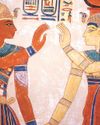
Peace Reigns
The news spread throughout Egypt—a new pharaoh, Ramses III, now sat on the throne.
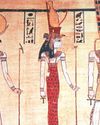
Problems To The East
Ramses III, the second king of Egypt’s 20th Dynasty, is viewed as Egypt’s last truly great pharaoh.
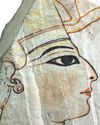
The Successors
Following the death of Ramses III, eight pharaohs, all named Ramses, ruled Egypt.
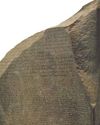
Stone Code
Hundreds of ships, led by the French general Napoleon Bonaparte, sailed from France in May 1798 on a secret mission.

Up & Away!
Eclipse observers often face unexpected difficulties, sometimes on their way to their chosen sites and sometimes at a site itself.

Edison's Eclipse Adventure
Thomas Edison (1847–1931) is the best-known inventor in American history.
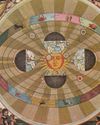
Digging Up Copernicus
The scientist “who made the Earth a planet” is how the Harvard-Smithsonian astronomer Owen Gingerich refers to Nicolaus Copernicus (1473–1543). Copernicus’ path breaking book, On the Revolutions of the Heavenly Spheres,challenged the centuries-old belief that the Earth stood stationary at the center of the cosmos.
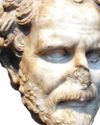
Demosthenes & Cicero
Even today, more than 2,000 years after they lived, Demosthenes and Cicero are still considered two of history’s most outstanding orators.
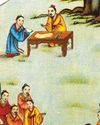
Confucius & Socrates
Some teachers are so inspirational that their influence lives on long after they die.